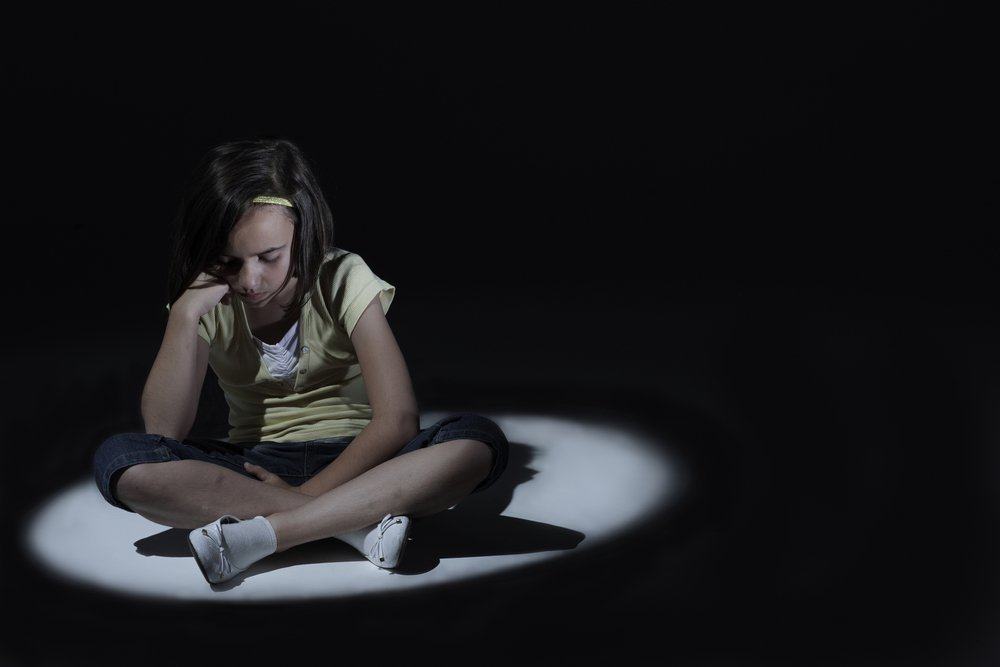Contents:
- Medical Video: Complex Trauma and its Effects on Child Development
- What is the result of trauma to children?
- How to deal with trauma in children?
- Do family routine things together
- Children need special attention from parents
- Keep away from things related to the causes of child trauma
- Understand the child's reaction to trauma
- Talk to children
- Support the child and give him comfort
Medical Video: Complex Trauma and its Effects on Child Development
Trauma in children is not something that is easy to overcome. Children who have experienced trauma must be given special attention so that the trauma that they feel does not occur continuously. This can happen because trauma to children can interfere with their development, which can then be carried away until they are adults.
Trauma in children can be obtained in the form of physical and psychological trauma, in which psychological trauma involves emotional experiences that are painful, shocking, tense, sometimes even threatening the child's life. This experience can occur during natural disasters, physical violence, sexual violence, and terrorism.
What is the result of trauma to children?
Children who have experienced trauma must get more attention because trauma that occurs at the age of the child can affect their development. This can happen because children experience many developments, especially the development of their brains. And trauma that occurs during this time - can be obtained from neglecting parents, physical violence, sexual violence, and emotional - can affect the normal development of the child's brain, including the size of the child's brain that helps control the child's reaction to danger.
During school age, trauma can delay a child's ability to react to danger, such as shock reflexes. Biological changes that occur in the body due to trauma can affect the way children and adolescents respond to the dangers and future stresses in their lives, and can also affect long-term health.
Not only is it biologically impacted, trauma can also have an emotional impact on the child because at this time the child's emotional condition is in the development stage. Childhood is a period where children are learning to recognize emotions and handle their emotions with the help of parents and caregivers. And when trauma occurs at this time, the child will find it difficult to recognize their emotions. This can make children show their emotions excessively. Children are also more likely to hide their feelings.
How to deal with trauma in children?
The child's reaction to trauma can be demonstrated directly or later, and the severity of this trauma can also be different between children. Children who already have mental health problems, have experienced trauma in the past, have little support from their family and the surrounding environment can show more reactions to trauma.
Signs of trauma shown by children can vary depending on the age of the child. Children under the age of 5 who experience trauma will show signs such as fear, continue to "stick" to parents, cry or scream, whine or tremble, stay silent, and become afraid of the dark.
Meanwhile, children aged 6-11 years will show signs such as isolating themselves, being very quiet, experiencing nightmares or sleeping problems, not wanting to sleep, being irritable and overdoing, unable to concentrate in school, inviting friends to fight, and losing interest in do something nice.
To deal with trauma in this child, you as a parent can do something, as follows:
Do family routine things together
Like eating together, watching TV together, and going to bed. Do these daily activities as usual. This allows children to feel safer and more controlled. Let the child live with people who are close or close to him, such as parents and family.
Children need special attention from parents
After experiencing trauma, children tend to be more dependent on parents, especially mothers, so you as a mother must provide your time for children. Give your child a hug so he feels safer and more comfortable. If they are afraid to sleep, you can turn on the child's room lights or let the child sleep with you. It's natural for children to always be close to you all the time.
Keep away from things related to the causes of child trauma
Like not watching a disaster show, if a child is traumatized by a disaster. This will only make the child's trauma worse, the child can recall what happened, make the child afraid and stressed.
Understand the child's reaction to trauma
Children's reactions to trauma vary, how you understand and accept this child's reaction can help children recover from trauma. The child may be able to react by being very sad and angry, unable to speak, and maybe someone will behave as if nothing painful has happened to him. Give children the understanding that feelings of sadness and disappointment are natural feelings they feel now.
Talk to children
Listen to children's stories and understand their feelings, give honest answers and are easy for children to understand if they ask. If the child keeps asking the same question, it means he is confused and trying to understand what happened. Use words that make a child comfortable, not use words that can make a child afraid. Help children express what they feel well.
Support the child and give him comfort
Children really need you at this time, accompany them whenever they need you. Give your child confidence that he can get past this and also say that you love him very much.
READ ALSO
- 8 Physical and Mental Trauma Due to Sexual Violence
- Tips for Success in Parenting Children for Single Dad
- Pros and Cons of Taking Care of Children with Babysitters












